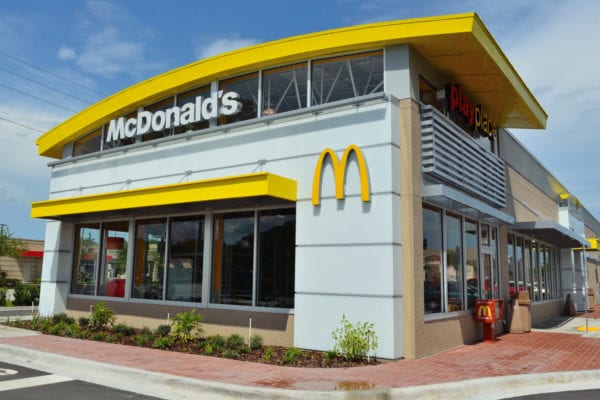Skift Take
Is every fast-food chain with franchisee problems open to selling? It sure seems like it. Unfortunately for Jack in the Box, the company isn't looking too attractive to potential buyers at the moment.
— Danni Santana
The theme in the restaurant industry right now is, if you can’t beat them, join them — which is why a record number of restaurant businesses are changing hands. Jack in the Box Inc. needs to partner up while there’s interest.
More than 100 North American restaurant chains were sold in 2017, a frenzied pace which continued this year, most recently with Inspire Brands Inc.’s $2.3 billion takeover of Sonic Corp. Inspire Brands, which owns Arby’s, also acquired Buffalo Wild Wings less than a year ago. Other companies to get scooped up along the way by larger peers and private equity firms include Panera Bread Co., Popeyes Louisiana Kitchen Inc., Bojangles’ Inc., Bob Evans Restaurants, Ruby Tuesday Inc. and Jack in the Box’s Qdoba chain.
On Monday, the San Diego-based burger-and-taco joint announced that its board is exploring a sale of the $2.1 billion company along with other options. If it doesn’t lock down a deal, it plans to have a new capital structure in place before the end of March, which may include “a securitization or bond issuance.” Jack in the Box’s net debt amounts to 4 times next year’s projected Ebitda, which is quite high relative to most of its peers. Shareholders are hoping for an acquisition, as the stock price surged about 7 percent in early trading Monday to more than $85 a share.
With two activist funds taking a bite out of Jack in the Box this year and franchisees calling for the ouster of CEO Lenny Comma, a sale would seem to be the most likely route. Just like other second-tier burger chains, Jack in the Box has been struggling to lure patrons amid an industry price war in which the leaders – McDonald’s Corp., Restaurant Brands International Inc.’s Burger King, Wendy’s Co. and Yum! Brands Inc.’s Taco Bell – have the upper hand because of their scale. Older chains like Jack in the Box are also losing their appeal in the face of trendier brands such as Shake Shack Inc.
While the recent deal for Sonic had other potential restaurant targets perk up, Jack in the Box shareholders shouldn’t get overly excited. Sonic had been making progress tackling declining same-store sales, and even then its takeover valuation was exceedingly high at 5.3 times trailing 12-month revenue and nearly 16 times Ebitda. A turnaround of Jack in the Box may be an even heavier lift, making it undeserving of the same valuation multiples. The best investors may be able to hope for is to see Jack in the Box’s value restored to where it was a year ago, when the shares traded for just over $100 apiece. That would be an acceptable outcome.
Shareholders should take their order to go.
©2018 Bloomberg L.P.
This article was written by Tara Lachapelle from Bloomberg and was legally licensed through the NewsCred publisher network. Please direct all licensing questions to [email protected].





